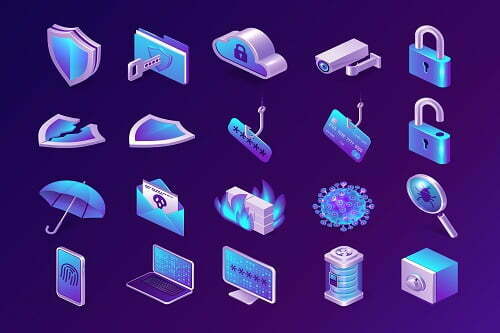Table of Contents
Technical skills | What are they?
Technical skills are basically a combination of theoretical knowledge (like knowledge of heart rate) and technology (heart rate machine) that you can use to do specific tasks. As you can understand from the example, these skills are often practical and also make use of modern technology.
Technical skills mainly differ from soft skills because they involve using technology and machines for specific tasks. Moreover, soft skills are interpersonal skills that you can apply across different settings and spaces. Like you can use your ‘communication skills’ at both business meetings and team lunches.
Now that you better understand technical skills, let’s move on to the next step! Here are 10 technical skills you must know about and have on your resume!
Typing abilities
Typing refers to writing information on any electronic device. This can include your laptop, computer, phone, typewriter, iPad, and so on.
Typing is unavoidable while doing web research, sending emails, and even writing papers. Since the fast-paced lifestyle demands error-free and timely typing, this technical skill is on top of the list. You also need to have accuracy and speed while typing to save time.
Do not think that this is a skill that only practice will make perfect. So what are you waiting for? Get typing right away!
Data analysis

Data analysis is a popular and ever-growing field in itself. Nearly every organization today needs a data analyst to successfully collect, organize and interpret data. But that’s not where it stops.
Every department in an organization also needs an analyst. And since not every team can afford its own analyst, companies look for individuals who have knowledge of their field and can interpret data easily.
For data analysis, you may require skills like-
- Analytical skills
- Calculation
- Compiling statistics
- Data analysis
- Modification
- Statistical analysis
Learning the ins and outs of data analysis can benefit you greatly and even get you a managerial position in time.
Researching
Primary technical domain skills like researching can significantly add value to your work. Knowing how to use the research effectively not only helps you complete your daily tasks and also nail big corporate projects. The utilization of internet reference materials and databases will add great value to your projects and research papers.
It may seem easy to just Google something and find the answer, but researching is a lot more than that. Always remember to find authentic information, which simply means cross-checking your reference if you’re adding data or sensitive information.
Tip: Websites with extensions such as .org, gov., and .edu provide more relevant information than other sources.
Software fundamentals

Most work assignments require using word processing, presentation, or spreadsheet tools. Microsoft Office is one of the most popular providers of these tools. That’s right – we’re talking about Microsoft Word, PowerPoint, and Excel.
While these tools seem very easy to use on the surface, they offer a lot of functionalities that come in handy. In-depth knowledge of Microsoft tools will enable you to work smoothly on daily tasks and take you a long way ahead in your career.
So practice your typing and writing skills with Microsoft Word, double-check your calculations with Excel, and handle your presentations with the help of PowerPoint.
Internet etiquette
How you communicate with entities and people on the internet is called internet etiquette or netiquette. This can apply to email, online communities, forums, and other social media channels.
It’s crucial to address people using their proper titles, such as Dr., Mr., Mrs., Ms., etc. It’s also important to avoid making any deprecating, berating, or nasty comments. You should be able to write professional emails in an appropriate format with good grammar and punctuation. Eliminate the use of emoticons, which give it a casual appearance.
Technical skills like these go a long way in communicating via platforms like social media and emails, helping you build a good rapport with your peers and subordinates.
Resolving troubleshooting issues

Issues in the workplace can occur anytime and force you to stop working in the middle of a project.
At such times, it’s important to get professional assistance when you are experiencing serious problems. However, you should be able to manage some common issues by yourself.
Some basic troubleshooting issues you should be aware of include-
- Slow system
- Blank screen
- Wi-Fi or networking issues, etc.
Backing up the information
Have you ever lost crucial information because you forgot to hit save? Yeah, that’s why this is on the list. This super-basic technical skill can save you a lot of time and maybe even money.
We understand that you have the entire world stored on your devices. Hence, it’s important to keep backup. This makes creating a reliable storage space an important technical skill. A backup allows you to retrieve important information anytime during submission or while working on an assignment.
Technology that teaches itself
With ever-developing technology, it’s important to take courses that teach you new things on the technical front. It is impossible to be updated on all the latest technology. But you can always start with what is used more in your field.
In order to learn more about technology yourself, you need to-
- Understand where to go for help.
- Know how to handle software and hardware in such situations.
- Learn how to find the right forums and communities for aid.
- Figure out how to find the solutions to your queries.
Skills in coding
Coding abilities are not only in demand, but they are also the buzz of the town. According to the Labour Market Information Portal, the predicted job growth for programmers is set to increase to 23.5%. It’s a skill that will almost certainly be necessary for the future workplace.
Progressive requirements like these make coding one of the most important technical skills to include in your resume. This is because most jobs rely on technology for their smooth implementation. And also because coding aids in the development of soft skills, such as problem-solving, creativity, and planning – which will be high in demand by 2025.
Detecting viruses and scams

A simple click on a link in a spammy email can land you viruses and scams on your device. These online vulnerabilities can risk your personal information and your devices and even put a complete stop to your daily tasks.
By reviewing facts like the sender’s contact information and avoiding opening any attachments or links, you can learn how to recognize viruses and scams. But your knowledge of detecting and removing these viruses doesn’t have to stop there.
Like for any other technical skill, you can also do courses, practice weeding out computer viruses, and learn how to better keep your system secure.
Key takeaways
- Technical skills are a combination of theoretical knowledge and technology that can be used to do specific tasks.
- These skills include typing abilities, data knowledge, detecting viruses and scams, and many more!
- Knowing basic technical skills will benefit you in the job market by helping you stand out from your competitors.
We hope you enjoyed reading this blog. In case of any queries, reach out to us or drop a comment below!
Liked this blog? Then read: Top cyber security jobs: salaries, skills & requirements
FAQ
Q1. What are the non-technical skills for a resume that a student should learn?
Answer – Some good-to-have soft skills include communication and collaboration skills, leadership skills, empathy, problem-solving, critical thinking, etc.
Q2. How can technical skills help?
Answer – Technical skills can help you add value to your resume and cover letter and help you in your job interview.
Q3. What are the important skills IT employers look for?
Answer – The important skills that IT employers look for include coding skills, Office skills, time and project management skills, computer networking skills, etc.







